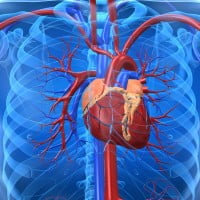Saturated fat alone doesn’t predict heart disease risk

The fact is that there is no evidence to prove the decades old belief that one must cut saturated fat intake for a better heart health. In Monday’s issue of the Annals of Internal Medicine, data from around 600,000 people was studied, resulting in 45 studies of observation with 27 random trials on coronary heart disease risks.
Despite a focus on reducing saturated fat in the diet dating back to the 1970s, saturated fat by itself did not help predict heart disease risk, said study author Dr. Dariush Mozaffarian of the department of epidemiology at Harvard University in Boston.
The researchers concluded that current evidence does not support guidelines encouraging high polyunsaturated fatty acid consumption and low total saturated fat consumption.
“Guidelines that focus on the nutrients, single nutrients, as targets for preventing chronic diseases don’t make a lot of sense. I think we need to move to food-based guidelines, to really talk about food, not nutrients,” he said in an interview.
In the past five to 10 years, it’s become clear that it’s wrong to take a single nutrient like saturated fat and use that to explain heart disease, Mozaffarian said. “It’s much more complicated.”
“The best evidence we have right now in nutritional sciences is kind of a Mediterranean-style diet, which does include some fats. Healthy foods, unprocessed foods, the fruits and vegetables, seem to be the way to go,” Bazinet said.
The review also confirmed that trans fats aren’t healthy. This breakthrough review was funded by the British Heart Foundation, Medical Research Council, Cambridge National Institute for Health Research Biomedical Research Centre, and Gates Cambridge.
Polyunsaturated fats or PUFAs
Omega-6 sources – Omega-3 sources
Soybean oil – Soybean oil
Corn oil – Canola oil
Safflower oil – Walnuts
– Flaxseed
– Fish: trout, herring, and salmon
Source: U.S. Centers for Disease Control and Prevention








